August 5
Msgr. Elvin Sunds
Retired
August 14
Father AnthonyClaret
Onyeocha
St. Joseph Woodville & Holy Family Gloster
August 16 – 50 years
Father Joe Dyer
Retired
September 15
Father Bill Henry
Retired
Thank you for answering the call!
August 5
Msgr. Elvin Sunds
Retired
August 14
Father AnthonyClaret
Onyeocha
St. Joseph Woodville & Holy Family Gloster
August 16 – 50 years
Father Joe Dyer
Retired
September 15
Father Bill Henry
Retired
Thank you for answering the call!
By Bishop Joseph R. Kopacz, D.D.
As we go deeper into the month of August the waves of a new year of ministry around the diocese roll onto the shores of our schools, parishes and social services. Not all programs and services begin at the same time, but by mid-September all are at high tide. Our Catholic Schools are going on all cylinders by the first week in August, in step with our four Early Learning Centers that serve over 12 months. Catholic Charities does not close its doors at any point in the year, but a new school year requires a higher engagement for programs that serve children and youth. Likewise, the lights in our churches continue to burn brightly over 52 weeks, but with the onset of fall, parish ministries are in high gear.

From the Cathedra of the bishop at the center of the diocese it’s captivating to take a long, loving look at the diocesan network that has so many levels and levers. Earlier this month I had the privilege of making a mission appeal on behalf of the diocese in Keene, New Hampshire. Of course, wherever and on whatever weekend an appeal is conducted, the scriptures always lead the way.
On the 19th Sunday in Ordinary Time on Aug. 10-11 the Bread of Life Discourse in chapter 6 of St. John’s Gospel was reaching toward its apex. “I am the bread of life…I am the living bread that came down from heaven; whoever eats this bread will live forever; and the bread that I will give is my flesh for the life of the world.” (John 6:48-51)
The Lord’s words echoed far and wide that weekend, not only in New Hampshire and Mississippi but everywhere in the world where the Catholic Church gathered. In other words, at the heart of Jesus’ discourse is the Eucharist where we consume his body and blood, as well as his words. We celebrate our unity and identity, for we are one, holy, catholic and apostolic church; (Nicene Creed) there is one faith, one Lord, one baptism, one God who is Father of all and dwells in all. (Ephesians 4:4-5)
However, flowing from this unity is amazing diversity. The church and the gospel are implanted in a particular place, time and culture, and just in our country alone there are significant differences in each region and, for that matter every state. On mission appeals, it is a joy for me to brag on the Diocese of Jackson and over 10 years I have spoken in catholic parishes from Wisconsin to Florida, from New Hampshire to California.
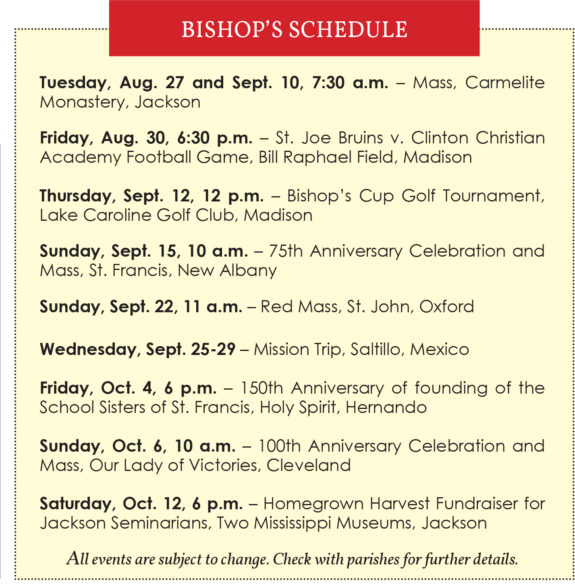
The CARA study undertaken during our Pastoral Reimagining process confirmed that Catholics in the Diocese of Jackson make up 2-3% of the state’s population. Demographics as well as geography, history, climate, education and many other factors coalesce to create the conditions for evangelization and a host of ministries. Those who genuinely love the Lord and care to see the church thrive are eager to understand the Diocese of Jackson, its accomplishments and challenges as Catholic Church in Mississippi. Many have never lived, traveled or visited the Magnolia State, but after one Mass two weeks ago a gentleman informed me that he was born in Yazoo City. Usually, our sisters and brothers in the faith respond generously when they hear how their contributions will assist parish, school and service ministries.
At this time of year, especially with the unfolding of many ministries and activities it is especially gratifying to share our story of faith during the Mass, our great prayer of thanksgiving. “With Saint Paul may we be confident that the Lord who has begun a good work in us, will bring it to completion on the day of Christ Jesus.” (Philippians 1:6)
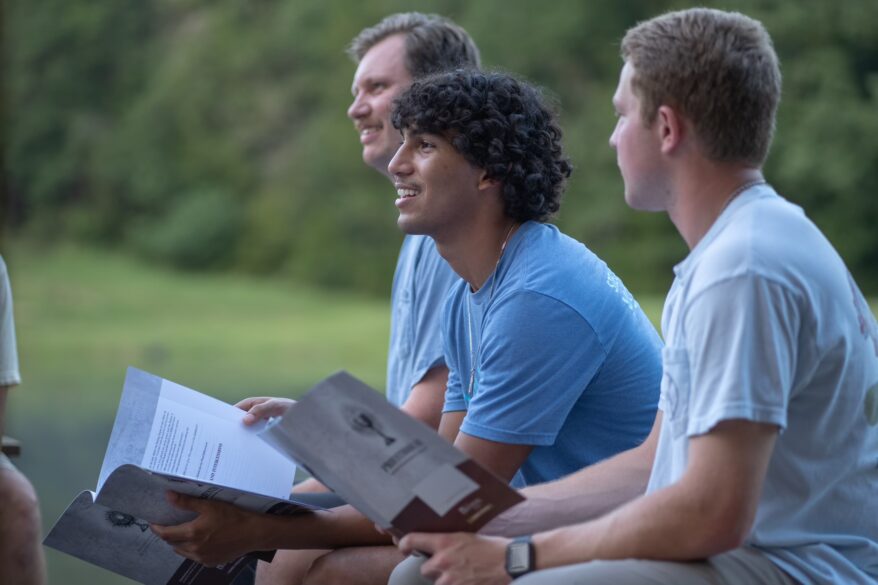
I need to pray for more vocations, and I ask for you to do the same.
Our seminarians are ‘back in school’ and we have six excellent candidates for the priesthood studying for our diocese. Will Foggo is our most-senior man this year. Will is scheduled to be ordained a deacon next December and ordained a priest in the spring of 2026. Two years behind him are Grayson Foley and EJ Martin, and a few years behind them are Wilson Locke, Francisco Maldonado and Joe Pearson.
All six of these men are precisely the type of men who we need to be considering the priesthood, but the fact is, we could use more. Our parishes and parishioners benefit when they have a full-time resident pastor, and we know that, with our current numbers, this is not possible in many parts of our diocese. We also know that many of our priests are ‘working multiple jobs,’ and this is not ideal when it comes to pastoral planning and working with the people of the parish. We are a mission diocese, to be sure, but I believe that the Lord will provide us with the priests that we need, and I pray that he will put a distinct call on the hearts of many young men to follow that call this year.
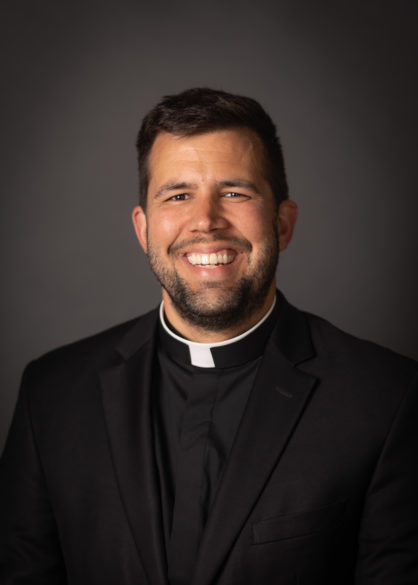
Every Monday of this ‘school year,’ from August through May, I am planning on offering a votive mass ‘for an increase in priestly vocations.’ This is one of the masses that is available to all priests on any day that isn’t a special feast day or a Sunday. Please encourage your pastor to consider if he could do the same. The mass is our greatest font of grace and the Lord will hear our prayers united to the sacrifice of the mass.
What else can you do this school year to pray for more vocations? Will you commit to offering a rosary for priestly vocations once a week? Or going to daily mass and offering your own intention to the Lord asking for more priests? Maybe you will offer an intention in your morning or evening prayers asking the Lord to bless us with more help at the altar. However you decide to do it, please make it a priority in your prayers. Our seminarians reminded me during our summer gathering earlier this month that prayer is the number one way to increase vocations. If we are not people of consistent prayer, asking the Lord of the harvest to send our laborers for his harvest, then nothing else we seek to implement will bear fruit.
So please, pray for an increase in priestly vocations. I know that the Lord will hear our prayers and will bless us. I hope that he will bless us with a grand abundance of applicants very soon, but I also trust that he knows what we need, and he only asks us to be faithful.
Father Nick Adam, vocation director
(Father Nick Adam can be contacted at nick.adam@jacksondiocese.org.)
By OSV News
(OSV News) – Among American Olympians achieving a spot on the podium in Paris are Catholics who have expressed their dependence on faith over the years as they’ve pursued excellence in their athletic pursuits.
Swimmer Katie Ledecky is outspoken about how her Catholic faith guides her life.
On Aug. 3, Ledecky became the most decorated American female gold medalist in any sport as well as one of only two women from any nation, in any sport, to win nine gold medals. It was her fourth consecutive Olympic gold medal in the 800 freestyle. She has 14 medals total. Just two days earlier she won her 13th Olympic medal – in itself historic. She took silver in the 4×200-meter freestyle relay.
After the 2021 Olympic games in Tokyo, the Catholic school graduate told the Catholic Standard, the Archdiocese of Washington’s newspaper, that she prayed the Hail Mary before each race to calm her nerves, just as she had during the 2012 and 2016 Olympics.

“My faith remains very important in my life, especially the last two years,” Ledecky told the Catholic Standard in 2021. She noted that watching livestreamed Mass, celebrated by her godfather Jesuit Father Jim Shea at a parish in Charlotte, North Carolina, helped her through the pandemic.
“My faith is strong, and I realized more how important that is,” she said.
Ledecky, 27, has nine gold, four silver and one bronze Olympic medals. In Paris, she is teammates with two fellow alumnae of her all-girls high school, Stone Ridge School of the Sacred Heart in Bethesda, Maryland: Phoebe Bacon and Erin Gemmell. Gemmell medaled alongside Ledecky with the 4×200 meter relay.
Ledecky and Bacon also attended the elementary Little Flower School in Bethesda, where both families are members of the parish.
They are among a host of U.S. Olympians who are Catholic, were raised in the faith, or attended Catholic schools or colleges and are now competing in Paris. Several have spoken in the past about the role their faith has played in their training and shaped their self-perception.
U.S. Olympic gymnast and Paris gold medalist Simone Biles, who was raised Catholic and in years past spoke about the role of faith in her life, has said she credits God for her success.
The high-flying 27-year-old, who trains in Spring, Texas, at her World Champions Centre gym, said in the past that when she travels, she sometimes takes with her a statue of St. Sebastian, the patron saint of athletes, and she also carries a rosary her mother gave her. Her parents have told media that they often pray the rosary for Simone. Biles and her family have also been known to attend St. James Catholic Church in Spring.
Biles, who won gold in the women’s gymnastics all-around competition in Paris Aug. 1 and helped lead the U.S. women to a team gold July 30, made those comments to Us Weekly in 2016.
“I never thought I’d be who I am,” she told Vanity Fair in a story published in January, “but look at God’s blessings.”

In recent years, Biles has been more private about her faith journey. In 2021, she diverged from church teaching on abortion access, saying on Twitter (now X) that she was “very pro-choice” arguing “you should not control someone elses body/decision.”
However, Biles has also been outspoken about addressing and prioritizing mental health, an issue the U.S. bishops have sought to raise with the National Catholic Mental Health Campaign. Following the pandemic-delayed Tokyo Olympics, Biles (a survivor of sexual abuse perpetrated by Larry Nassar, a USA Gymnastics’ national-team doctor) publicly admitted that she struggled with her mental health and athletics. At the time, she had stepped out of the Olympic competition after experiencing the “twisties,” a sense of disorientation when in motion that could lead to serious injury.
In Paris, however, Biles has exuded confidence – publicly thanking her therapist for routine care – and her dedication to her sport has paid off, with many calling her the “greatest of all time.” She is now the most decorated U.S. Olympic gymnast in history, with nine Olympic medals.
Ryan Murphy, a Catholic swimmer who grew up in Florida, is taking home a bronze medal in the men’s 100-meter backstroke. In a 2016 interview with the National Catholic Register, he described the importance of having an active prayer life and living out his faith. He said, “I’m a firm believer in God. My faith is important to me. There are, however, times when I rely on him more than others. Overall, I am private in my spirituality.”
Murphy, 29, drew the spotlight in Paris not only for his race, but for the sign his wife, Bridget, held up as he was walking to the podium: “Ryan it’s a girl!” The couple, who married in September, are reportedly expecting their first child in January.
A former altar boy, Murphy described his family to the Register as ardent supporters of Catholic education. The story described him as having “a great devotion to St. Christopher, the patron saint of swimmers.”
He garnered attention during the 2016 Olympics in Rio de Janeiro – where he won three gold medals – after genuflecting following a swim.
“I believe God has given me a great talent, for which I’m eternally grateful,” he told the Register at the time. “My faith gives me comfort despite the outcome of a race. I ultimately believe – I know – God has a larger plan for me.”
(Staff of the Texas Catholic Herald also contributed to this story.)
Reflections on Life
By Melvin Arrington
Why does no one want to talk about sin these days? Why do people refuse to admit to wrongdoing anymore. The prevailing philosophy seems to be one of “I’m okay; you’re okay.” However, Scripture teaches that “if we say we have no sin, we deceive ourselves, and the truth is not in us.” (I John 1:8) We are all guilty as charged, every single one of us: “All have sinned and fall short of the glory of God.” (Romans 3:23)
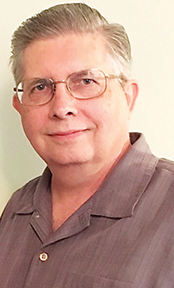
No matter how we classify it, sin involves disobedience; it is a transgression of God’s law. Some infractions are minor (venial); others sever our relationship with God and put our souls at risk (mortal). For the sin to be considered mortal it has to meet all of the following criteria: 1) it must involve grave matter, for example, when a person breaks one of the Ten Commandments or fails to perform works of charity as specified in the 25th chapter of Matthew; 2) the person must have full knowledge and awareness of the seriousness of the matter; 3) he must give full consent to what he is about to do; that is, his will must be unimpaired. At the risk of oversimplification, we might say that the mortal category applies when it deals with doing something that’s really bad, and the person realizes how serious it is, and he goes ahead and does it anyway. Not all our faults involve actions we take. They can include our thoughts and words as well. And when we recite the Confiteor, we acknowledge that we are responsible not only for the things we have done but also for what we have failed to do.
During the early Christian centuries, several attempts were made to catalog what became known as the seven deadly sins, also called the seven capital or cardinal sins. Evagrius Ponticus, a monk who lived in the fourth century, put together the first list, including in his compilation what he called eight evil thoughts that lead us into temptation. Others who followed in Evagrius’ footsteps produced registers alternating between seven and eight sins. At the end of the sixth century Pope Gregory I (Gregory the Great) composed a list of seven items that closely resemble the modern-day canon of deadly vices: anger, envy, lust, pride, gluttony, sloth and greed. Although the names used for denoting each of these may have varied across the ages, the transgressions themselves have remained the same. As Archbishop Fulton J. Sheen has remarked, there are no new sins; there are only new sinners.
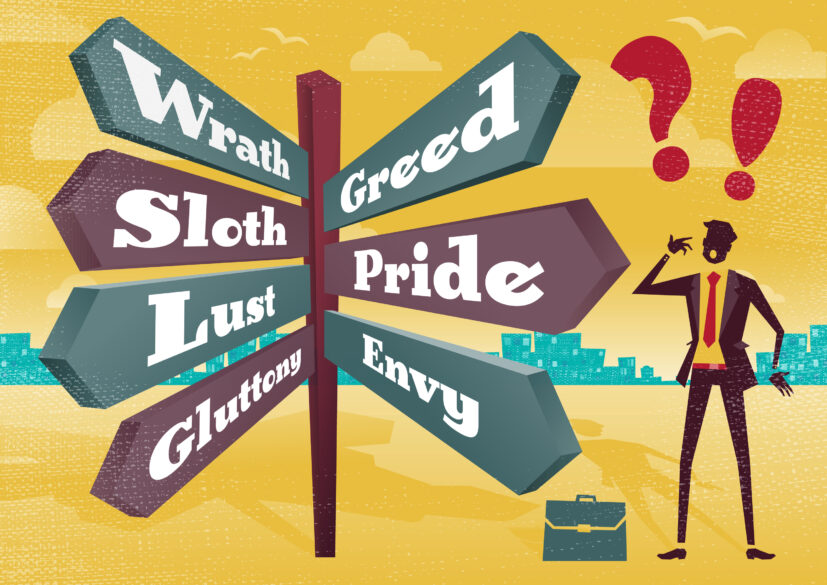
Why do we sin in the first place? It’s because we’re all searching for happiness. But many are searching in all the wrong places. Instead of discovering the joy and contentment that come from having a deeply committed personal relationship with Jesus Christ, they grasp at the things the world has to offer – wealth, power, pleasure, fame, etc. These usually result in only short-term gratification and long-term unhappiness.
Every sin is an excess or a defect of something that is good. Not surprisingly, much of our modern secular culture is characterized by excess, self-absorption and perversion of the good. It tells us that the classic vices are not bad at all. In fact, they can be very good. What’s wrong, they say, with trying to get even with your enemy? Why feel guilty about accumulating as much wealth as possible without concern for the needs of the poor? What harm is there in having an occasional affair as long as no one gets hurt? What’s wrong is that in each case the ego is out of control. When the predominant attitude is one of “it’s all about me,” concepts such as forgiveness, generosity and sacrificial love get shoved out of the way.
So, how do we protect ourselves from enticements that may lead us astray? For a start, we can pray for an extra measure of grace to fight off temptation and make a conscious effort to avoid the near occasions of sin, that is, the things and places that can lead us away from God and His church. In addition, we should pray to St. Michael: “St. Michael the Archangel, defend us in battle. Be our protection against the wickedness and snares of the devil.” And then we should follow up our prayers by putting them into action, for example, involving ourselves in a variety of charitable activities.
Bishop Robert Barron recommends practicing what he calls the seven lively virtues in order to cancel out the deadly vices. In other words, we should counterbalance anger with forgiveness, correct envy with admiration, exchange lust for chastity, rectify pride with humility, renounce gluttony in favor of temperance, counter sloth with zeal, and replace greed with generosity. Performing these virtues will loosen the bonds of sin and allow us to once again experience the love of God flowing through us.
Imagine an oblong box with anger, envy and lust aligned along one side, pride positioned at the head, and gluttony, sloth and greed stationed along the other side. The box represents a coffin; inside lies the soul. These deadly vices are, in the words of Archbishop Sheen, the “seven pallbearers of the soul.” They lead us down, down into darkness, down into the depths of sadness and despair, down, down to the death of the soul!
Our contemporary culture tries to pound into us the notion that the virtues are old-fashioned and out of step. But we know better. We know that by praying and doing good works we can, through the grace of God, cancel out those vices that pose the greatest threat to our spiritual wellbeing. If we follow the virtues, they will become for us stepping stones leading upward – up to peace and contentment, up to the attainment of our heart’s innermost desire, up to everlasting joy, up, up to God!
(Melvin Arrington is a Professor Emeritus of Modern Languages for the University of Mississippi and a member of St. John Oxford.)
FAITH IN EDUCATION
By Karla Luke
As summer vacations come to an end, we joyfully welcome our students, families and staff back to school for another year of learning, growth and community. We are excited and eager to begin a new school year full of great possibilities and the promise of fresh starts.
This year, our school community will be guided by the timeless and profound theme of “Faith, Hope and Love.” Rooted in 1 Corinthians 13:13, these three virtues are not just ideals but the very foundation upon which we build our lives as followers of Christ and most important Catholic educators. As we begin this academic journey together, we invite every member of our school family to embrace these virtues in all that we learn and do.
Faith is the foundation of our Catholic education. It is the lens through which we view our world, and it is the source of strength that sustains us through challenges. It is the trust we place in God’s providence, knowing that He walks with us in every step we take. In our classrooms, we are called to cultivate an environment where faith is not just taught but lived. This year, we will continue to fulfill our mission of providing a Christ centered environment by deepening our faith through prayer, worship and service. In our classrooms and at home, we will encourage our students to seek God in all things, to rely on Him in moments of doubt, and to trust in His plan for their lives.
In a world often clouded by uncertainty and challenges, hope is the light that leads us forward. This school year, we are committed to instilling a sense of hope in our students, reminding them that they are the future and that with God, all things are possible. Hope gives us the courage to dream big, to set goals, and to persevere even when the path ahead seems difficult. Hope is the source of our vision statement “Our Catholic schools thrive in a diverse and ever-changing world.”
Above all, we are called to love each other – unconditionally, selflessly and generously. Love is the heart of our Catholic faith, and of our Catholic school community. In every interaction, in every lesson, we will strive to embody the love of Christ, showing compassion, kindness and respect to everyone we encounter.
Service is the most outward expression of love. This year, we will place a special emphasis on service, encouraging our students to put their love into action by helping those in need, both within our community and beyond. Through acts of kindness, big and small, we will teach our students that love is not just a feeling, but a choice – a choice to live as Christ lived, to serve as He served, and to love as He loved.
Welcoming New Faces to Our School Family
As we begin this exciting new school year, we are blessed to welcome four new administrators to the Diocese of Jackson Catholic education school family. Each brings a wealth of experience, a deep commitment to Catholic education, and a heart full of love for our students and community.
Whest Shirley joins us as the high school principal of Cathedral Catholic School in Natchez. With a strong background in educational leadership, Shirley previously served as superintendent for Concordia Parish, Louisiana and principal of Concordia Parish Academy of Math, Science and Technology.
Cynthia Dixon will lead Holy Family in Holly Springs as principal. She brings her experience from Lewisburg Elementary, a national Blue Ribbon School, and Greenbrook Elementary, where her dynamic leadership will greatly benefit the Holy Family community.
Heather Ascherl is the new principal of St. Joseph Catholic Elementary School (Our Lady of Lourdes) in Greenville. Formerly a regional digital learning coordinator with the Mississippi Department of Education, Ascherl’s expertise in technology and professional development will be invaluable to the St. Joseph community.
Wendi Murray takes on the role of director at St. Paul Early Learning Center, coming from the Rankin County School District’s Early Learning Collaborative. She will be joined by assistant director Susan Irby, a long-time employee of St. Paul’s ELC, following the retirement of Jennifer Henry and Darlene Scanlon.
As we move forward into this new school year, I am filled with excitement and optimism for all that we will accomplish together. With “Faith, Hope and Love” as our guiding virtues, I am confident that this will be a year of incredible growth, learning and spiritual enrichment for all members of our community.
Thank you for your continued trust and partnership in the mission of Catholic education. I look forward to seeing the wonderful things we will achieve together this year. May God bless each of you and may His love guide us in all that we do.
Welcome back, and let’s make this a year to remember!
(Karla Luke is the executive director of Catholic Schools for the Diocese of Jackson)
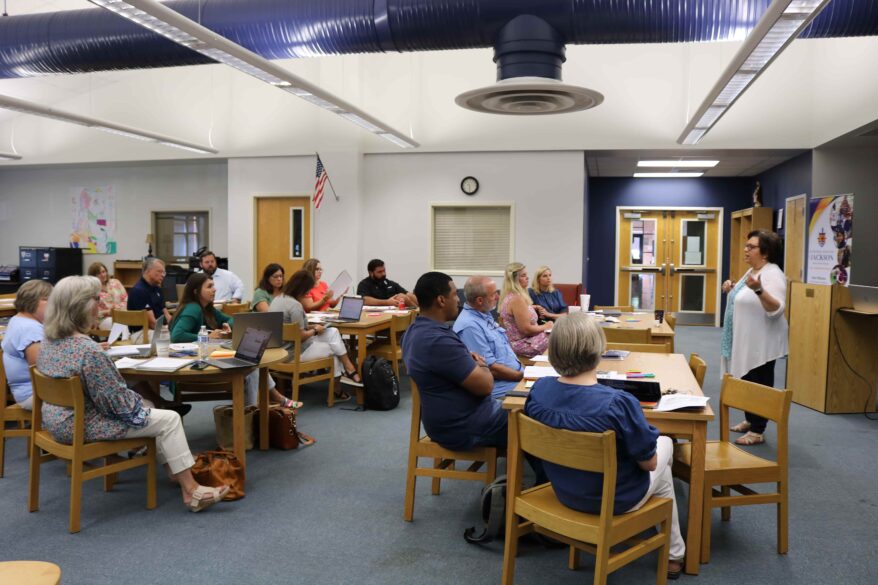
GUEST COLUMN
By Father Lincoln Dall
On the week of July 8, I arrived on the beautiful campus of the University of Notre Dame in South Bend, Indiana to conclude my participation in the Mathis Liturgical Leadership Program, the culmination of a two year journey. In the inaugural cohort of this program, eighteen of us have been focusing the past two years on projects dedicated to fostering a Eucharistic culture in our parishes, dioceses, Catholic schools, and communities in conjunction with the Eucharistic revival in the United States.
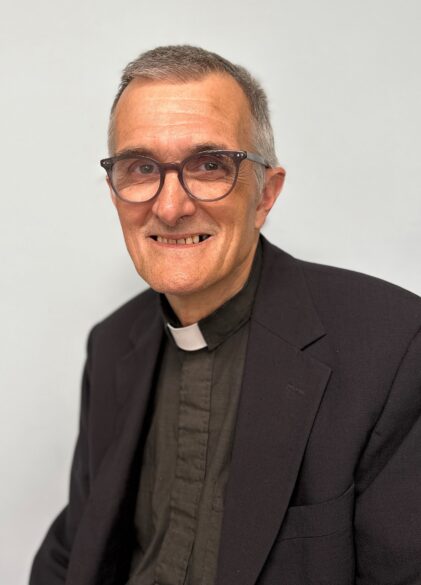
For these past two years, my project has been focused on developing the Catholic prison ministry around the Eucharist at the Central Mississippi Correctional Facility (CMCF) in Pearl.
Back when I started this project in the summer of 2022, we were just recently granted access again to the inmate population after the pandemic lockdown. We struggled to get into the prison to celebrate Mass with the men, only seeing them once or twice a month at best. We often had to meet in the foyer of a building or at the prison fire station or outside the prison cafeteria on a picnic bench with pigeons lurking overhead. However, we never gave up on this ministry even in the midst of many roadblocks and challenges.
Finally, in the spring of 2023, we were granted access to the main chapel at the prison where we were able to celebrate Mass weekly with the men there. We now have altar servers, lectors, a Eucharistic minister, and ushers, just like any other parish in our diocese. We even have a tabernacle now at the prison chapel, with Jesus being present with them in the Blessed Sacrament every moment of the day.
We also have men in our Catholic community who visit the other inmates on pastoral visits and who invite them to join us for Mass and for our other activities. We form the men to see themselves as Eucharistic missionaries, living out the spirit of the Eucharist in the harsh prison environment. The Lord has blessed us in abundance with this vibrant ministry in which we sometimes have four different Masses in a week and in which more than 20 men have entered the church through the RCIA program this past year.
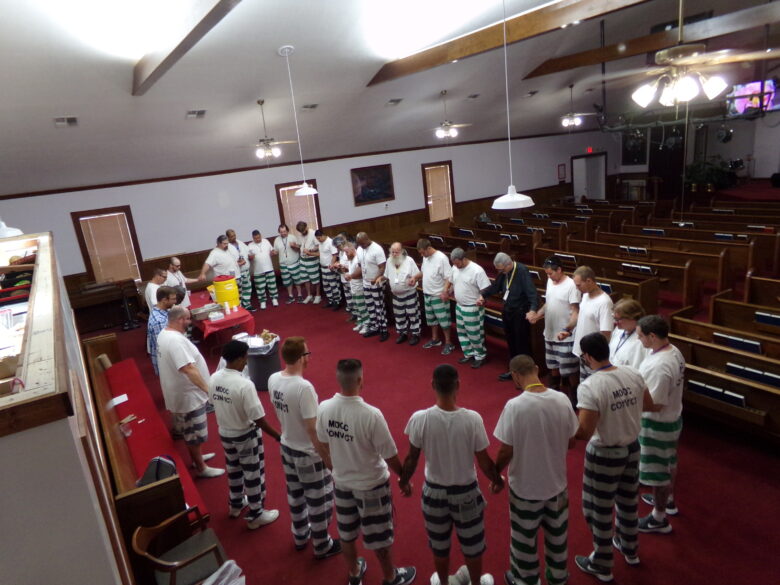
I was so excited to present my project about our prison ministry on that recent visit to the Notre Dame campus. My classmates and professors have been so supportive of our prison ministry. In conjunction with my presentation, I presented two videos prepared by the inmates themselves, showing the history of our Catholic prison ministry and giving testimony as to how many lives have been transformed. My professors and classmates were very enthusiastic about the progress of our prison ministry and about the Eucharist being at the center of all we do.
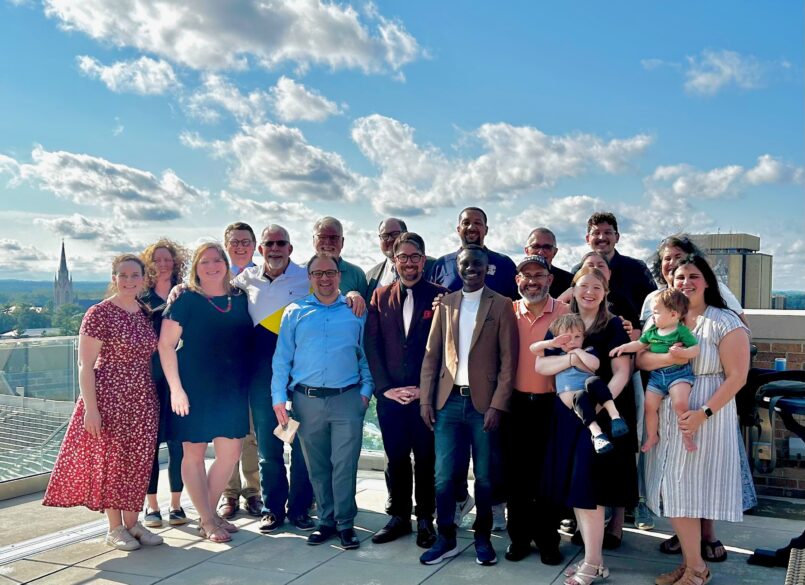
Dr. Tim O’Malley, the professor at the heart of the Mathis Liturgical Leadership program, believes that the success of the Eucharistic renewal will hinge upon the way we implement at Eucharistic culture on the local level. Our Catholic prison ministry is in the process of writing a memoir about our experiences of forming a Catholic community behind bars. We also are in the process of getting more formation for the men in leadership positions in our ministry through the Catholic Distance University and through our diocese’s catechist certification program. We are also implementing a garden project, in which the men will learn gardening techniques and skills that they will be able to take home to their families when they are released from prison.
I have been involved in prison ministry for the sixteen years I have been a priest, ever since I received a letter from an inmate in the Hinds County Detention Center in Raymond requesting a visit from me. It amazes me how the humble beginnings of this ministry have now developed like the small mustard seed growing into a huge plant in Mark’s Gospel. I am grateful to the Mathis Liturgical Leadership Program of the University of Notre Dame, of the way that program has helped our Catholic prison ministry at CMCF flourish with so many blessings from God.
(Father Lincoln Dall is vicar general for the Diocese of Jackson and pastor of Holy Savior in Clinton and Immaculate Conception in Raymond.)
NATION
WASHINGTON (OSV News) – Celebrating an Aug. 3 Mass for the Outreach 2024 LGBTQ Catholic Ministry Conference at Georgetown University, Cardinal Wilton D. Gregory of Washington stressed the need for sincere dialogue in seeking unity in the Catholic Church. “In many respects, you are engaging in an act of synodality – the vision and invitation proposed by Pope Francis that sincerely and openly speaking and listening to one another under the light and guidance of the Holy Spirit is the way that the church grows in perfection,” Cardinal Gregory said in his homily at the Mass, which was celebrated at the university’s Dahlgren Chapel of the Sacred Heart. The annual Outreach conference – held Aug. 2-4 this year – brings together Catholics who identify as LGBTQ and supporters of that community. According to the conference’s website, the gathering is held to “build community, share best practices and worship together.” The cardinal praised the Outreach conference attendees for their willingness to engage in discussions at a challenging time for the Catholic Church and the United States. Concluding his homily, the cardinal said, “The presence and the pastoral needs of our LGBTQ sisters and brothers may often be viewed as a volatile topic, but they must be faced with sincerity and genuine compassion. I pray that this conference advance that goal and make us a stronger, holier, and more welcoming church and nation.”
WASHINGTON (OSV News) – The Catholic Benefits Association filed a motion July 24 in federal court for preliminary injunction against the Equal Employment Opportunity Commission over two regulations it says violates Catholics’ religious beliefs. The group objects to two regulations issued earlier this year. One is the final regulation issued for the Pregnant Workers Fairness Act, granting workers protections for time off and other job accommodations for pregnancy-related medical conditions such as miscarriage, stillbirth and lactation – but also for abortion, which was opposed by many of the bill’s supporters, including the U.S. Conference of Catholic Bishops. The other was a provision of the EEOC’s “Enforcement Guidance on Harassment,” which CBA CEO Doug Wilson argued in a statement means that “if an employer declines to use an employee’s preferred pronouns or refuses to grant him or her access to bathrooms or locker rooms for the opposite sex, such decisions would constitute actionable sexual harassment.” Both regulations, Wilson said, “imposed mandates unacceptable for Catholic employers and never intended by Congress.” Martin Nussbaum, CBA’s general counsel at the Colorado Springs-Colorado-based First and Fourteenth law firm, explained to OSV News the Supreme Court’s recent overturning of its Chevron doctrine eliminates the courts’ deference to regulatory agencies’ interpretation of law that would have put a heavier burden on the CBA’s legal challenge. The CBA’s membership comprises Catholic dioceses, hospitals, school systems, religious orders and other entities that offer their employees insurance and benefit programs that adhere to Catholic teaching.
VATICAN
VATICAN CITY (CNS) – Pope Francis said he dreams of visiting China one day and, especially, praying at the Shrine of Our Lady of Sheshan near Shanghai. In an interview with Jesuit Father Pedro Chia, director of communications for the Jesuit’s Chinese Province, the pope said he also would want to meet with the country’s bishops and with all Chinese Catholics, who “are indeed a faithful people who have gone through so much and remained faithful.” Vatican-Chinese relations have been difficult for decades with the country’s communist authorities being suspicious of Catholicism as a “foreign” influence on their people. The interview, conducted in Spanish, was filmed in the library of the Apostolic Palace May 24, the feast of Our Lady of Sheshan, also known as Our Lady Help of Christians. The Jesuit’s Chinese Province released the video on YouTube Aug. 9.
VATICAN CITY (CNS) – More than a week after the opening ceremony of the Paris Olympic Games, the Vatican joined people who complained that a segment of the show featuring drag performers offended Christians. “The Holy See was saddened by certain scenes in the opening ceremony of the Olympics in Paris and can only join the voices that have been raised in recent days to deplore the offense caused to many Christians and believers of other religions,” said the statement published by the Vatican press office late Aug. 3. The Vatican statement did not specifically identify the July 26 performance, which featured drag performers, including one wearing a crown, seated at a table in a scene that reminded many people of Leonardo da Vinci’s famous painting of the Last Supper. “In a prestigious event where the whole world gathers around common values, there should be no allusions that ridicule the religious convictions of many people,” the Vatican statement said.
WORLD
MANAGUA, Nicaragua (OSV News) – At least 11 churchmen have been detained by police and paramilitaries over a weeklong assault in northern Nicaragua, depleting the already demoralized Diocese of Matagalpa – whose leader, Bishop Rolando Álvarez, lives in exile. Nine priests and a deacon were detained Aug. 1 and 2 – with some taken from parishes and parish residences – according to independent Nicaragua media. An octogenarian priest was also detained July 27 in the Diocese of Estelí, where Bishop Álvarez is apostolic administrator. “The Diocese of Matagalpa practically no longer has any clergy. We’ve been expelled, pressured and forced to flee. Parishes are on their own,” an exiled priest, familiar with the diocese, told OSV News. “(The church) has been attacked from all sides. They’ve removed clergy, they’ve frozen its accounts. The church has survived,” he added. But he said of the ruling Sandinista regime, “Their ultimate goal is is to exterminate the diocesan church where Monsignor Rolando (Álvarez) is still bishop.” The arrests reflected the deepening repression of the Catholic Church in the Central American country, which has careened toward totalitarianism. President Daniel Ortega and his wife, Vice President Rosarillo Murillo, continue to crack down on dissent, close spaces for civil society and infringe on freedom worship – with priests being spied upon and forced to watch their words during Mass.
SÃO PAULO (OSV News) – The Aug. 9 passenger plane crash in the city of Vinhedo, Brazil, killed all 62 on board, greatly touching different Catholic communities in the country. Pope Francis prayed for the victims of the crash during his Aug. 11 Angelus prayer in the Vatican: “Let us … pray for the victims of the tragic air crash in Brazil,” he said. A twin-engine turboprop plane, traveling from Cascavel, in Paraná state, to Guarulhos airport, in the São Paulo metropolitan area, crashed close to residential buildings, dropping 17,000 feet in just one minute, only 45 miles away from its destination. Many of Voepass Brazilian airline passengers lived in the region of the Archdiocese of Cascavel, which released a letter of condolences a few hours after the incident and informed that all Masses celebrated over the following three days would be dedicated to the victims. “Our Archbishop, José Mário Scalon Angonese, expresses his deepest solidarity to the families affected by this tragedy. He joins the community in prayer and offers his spiritual support, wishing that divine comfort can alleviate the sorrow and pain of everyone who is suffering,” the note, posted on the archdiocese’s Facebook page, read. The parish church of St. Peter the Apostle in Guaratinguetá, in São Paulo state, was also affected by the tragedy. Local churchgoers Maria Auxiliadora Vaz de Arruda and her husband José Cloves Arruda were among the victims. Father Aloísio dos Santos Mota released a statement in order to express his special sorrow for the loss of the couple. The wife, called Dona Dôra in her church community, was known all across the region. “I’ve been her parish priest for five years, since I arrived in Guaratinguetá. She had an iconic presence in our church, a protagonism that everybody could notice,” Father Mota told OSV News.
By Galen Holley
Much like the French author Marcel Proust, in his multi-volume novel Remembrance of Things Past, it was a cookie that stood out in James McChesney’s mind as an intimate link to history.
“My wife, Sally, used to get up early on Sundays and bake six dozen cookies for the after-church social,” said McChesney,speaking of the old days, when he and Sally had to slap their children’s hands to keep them away from the baked during the drive to church.
“Snickerdoodle, chocolate chip, oatmeal raisin, English tea,” said McChesney. He was seated at a side table which made room for his walker. McChesney and several of his fellow parishioners, several of them octogenarians, were at the seventy-fifth anniversary celebration of St. Francis Church. It was held at the Union County Heritage Museum on June 29. More than sixty parishioners gathered to look over old photos, enjoy hors d’ourves, and to share stories about the church’s beginnings.
A collage of sepia colored photographs passed on a projector screen. McChesney saw an image of himself. He beheld a much younger man, dressed in a Western style shirt, standing next to another of the old-timers, Ralph Hanskiewicz. Ralph and his wife, Bea, have been members of St. Francis for several decades.
Helen Roberts Greer also saw a younger version of herself on the screen. Born into the church in 1952, Greer grew up with seven siblings as a member of St. Francis. Greer was raised in the countryside and remembered several young seminarians visiting. The soon-to-be-priests enjoyed homemade biscuits, garden vegetables, and all the delicious, wholesome fare of an abundant, country table. Greer’s parents planted flowers, and women from the church used them in the May Crowning each year.
Greer was particularly fond of a hard working priest from the Glenmary Home Missioners named Bob Rademacher. Father Bob helped rural families pick cotton and do all manner of farm work. He wasn’t afraid to get his hands dirty.
At the celebration on June 29, former parishioners, who’d long since moved away, showed up for the event with pictures of great grandchildren in their wallets. Lorraine Turner was there. She was celebrating the memory of her mother and long-time member, Betty Lang, who passed in 2016.
Names rose up like prayers from conversations around the room. People remembered Bill and Shelia Towner, the artist M.B. Mayfield, musician Kerry Lynch, as well as Marion Coltharp. Faithful member Mary Goins’s son, Kelly, gave a moving testimonial about how the Catholic Youth Organization touched his life.
Sarah Pierce joined St. Francis some 30 years ago. She almost cried talking about her passion for the church.
“I love the Catholic Church,” Pierce said. “It’s the pinnacle of my heart.” Maxine Hall was there, helping and praying as always. Twin brothers Ronnie and Donnie Rosetti have been strong supporters and committed members for decades. Ronnie shook hands and hugged necks as is his usual custom.
“‘I want people to become Catholic, because I love this church,” he said.
A painting hangs in the fellowship hall at St. Francis Church on Highway 15. It’s a portrait of a demure, stately, tastefully dressed woman named Dorothy Kelso. Her name was on the lips of all the old-timers gathered at the museum on June 29. Kelso moved with her family to New Albany in 1922, and the first Mass was celebrated in the Kelso home, at 357 Garfield Street, in 1938. She’s considered the matriarch of St. Francis Church.
The portrait of Kelso serves as a reminder to a new generation who are carrying on the legacy of St. Francis of Assisi Parish.
Parks Smith and his wife, Vance, are part of the younger set at the church. They have a big, old-fashioned Catholic family, five girls and one boy. Parks sings in the choir, and he dresses to a “t” every Sunday with a coat and tie. Smith is a convert from Protestantism, and he stood up and spoke from the heart at the celebration.
“I never imagined what a stepping stone this would be,” said Smith, a school teacher. “We seldom see how God is setting up things in our lives. A seed has been planted in my life. I’m deeply grateful for this church.”
(Galen Holley is a member of St. Francis of Assisi in New Albany.)
By Joanna Puddister King
JACKSON – August is recognized as national “make-a-will” month, an initiative aimed at raising awareness about the importance of estate planning. With less than one-third of Americans having a valid will, the Diocese of Jackson invites the community to take proactive steps in securing their future and their legacy using the free service – My Catholic Will.
“Creating a will can often feel like a daunting task, one that many of us tend to put off to do some time in the future,” says Rebecca Harris, director of the Office of Stewardship and Development for the Diocese of Jackson. “However, viewing this process from a different perspective might make it easier to approach. Think of creating your will as a way to establish a lasting legacy for your loved ones and even your Catholic faith.”
While many expect to live well into the future, not being legally prepared for the end could lead to significant issues. Ambiguous or absent final wishes could result in conflicts among beneficiaries. Those who die without a valid will risk having the distribution of assets decided by state law.
The Office of Stewardship and Development aims to simplify the process of estate planning for those across the diocese. In partnership with My Catholic Will, the diocese is offering a free online service that allows individuals to create a legal will in under 20 minutes in most cases. This service is available to everyone in the diocese and can be accessed by visiting https://mycatholicwill.com/jacksondiocese. The site also features a living will builder, enabling individuals to outline their medical wishes should they become unable to communicate or make decisions for themselves.
“Taking the time to create your will not only provides peace of mind but also helps secure your legacy,” Harris said.
Even those who currently have a will can take this month as a reminder to update their wills.
“I’ve had a will for decades now,” said Bishop Joseph Kopacz. “It continues to evolve as time goes on.”
In a recent video on “Make-a-Will” month, Bishop Kopacz emphasizes the importance of being intentional and mindful about what matters most to us. For those who are devoted to their faith, their parish, their school, and their diocese, a will provides numerous ways to support these commitments.
Additionally, the diocese also offers a free “Funeral and Financial Planner Guidebook” to assist in the estate planning process. For questions about wills or other planned gift options, Harris is available for assistance at rebecca.harris@jacksondiocese.org.
National “Make-a-Will” month serves as a reminder to all individuals, regardless of age or wealth, to consider their estate planning needs and take the necessary steps to ensure their wishes are honored.